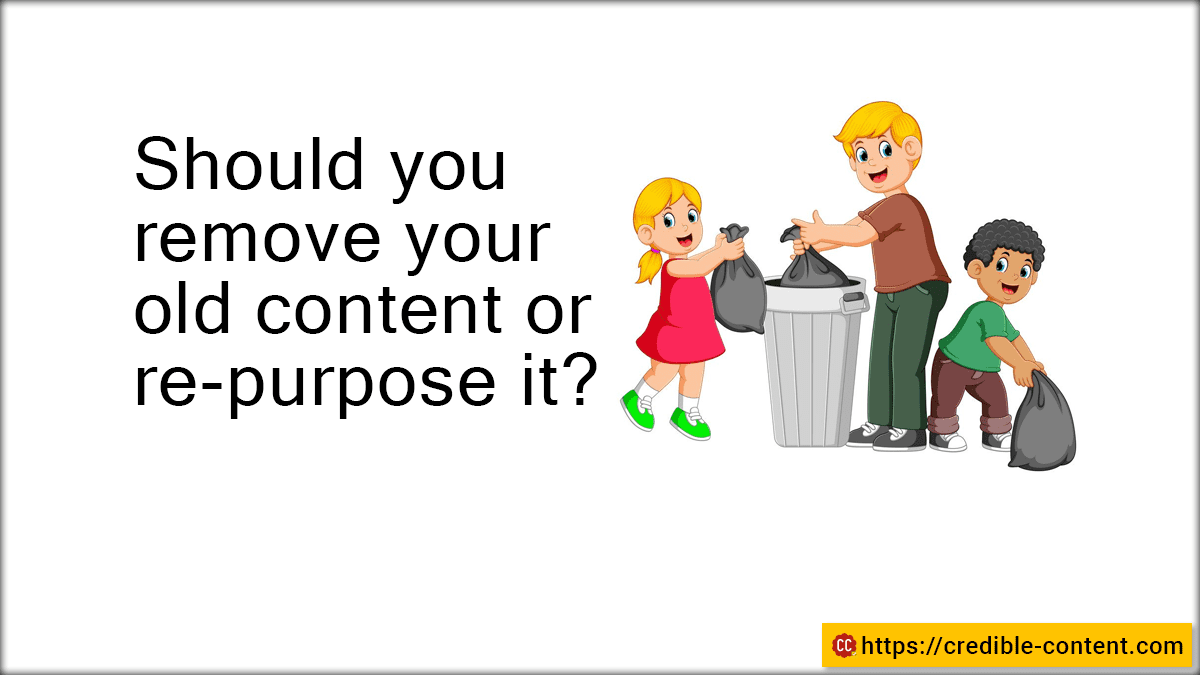You have been publishing content for years, right? By now you must have a couple of thousand blog posts and web pages. Some of the web pages and blog posts on my blog are from 2008-2010. Some of the information is evergreen. For example, some writing tips that I have shared can be used even now. I have little time sensitive content.
Read: The difference between content repurposing and content spinning
Should you delete or re-purpose your old content, is the question asked by this CMSWire blog post.
If you are not a professional content writer yourself and you also don’t write by yourself, you must have spent money on your content. Your existing content is the asset you have invested in.
Right now, the five-year-old content may look outdated and stale but when you published it you paid good money for it and it was quite up-to-date. You were proud of it.
Of course, if your business direction has changed than the old content solves no purpose if it was written for your old direction. It is irrelevant content. Its time has passed. Even if it is drawing traffic, it isn’t benefiting you. If you want, you can remove the content from your website. You can even request Google to remove it.
Other than that, I always advise my clients to re-purpose content. You can rewrite it. If the old information is relevant, you can update it. From a subsection you can write a completely new blog post. If you think the language of the blog post or the web page doesn’t truly represent your brand correctly now, you can update that.
Being a content writer, I am possessive about what I create. Since for the past 15 years more or less I have been providing the same services, nothing much has changed. Maybe a few sentences here and there, but other than that, with little revisions, I can easily update my old content. You should do the same if your content is not completely irrelevant.


